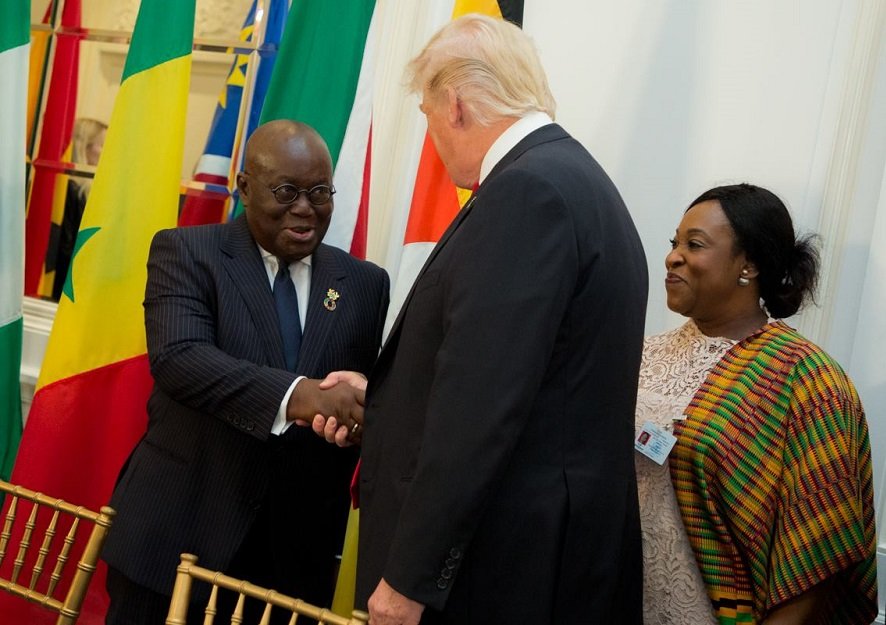The United States government has imposed visa restrictions on Ghana for its failure to issue travel documents to over 7000 Ghanaian citizens awaiting deportation from the U.S.
The Department of Homeland Security (DHS) said in a statement on Thursday that the U.S. Secretary of State Mike Pompeo has ordered the U.S. Embassy in Ghana to discontinue issuing all non-immigrant visas (NIV) to two groups of Ghanaian applicants starting from February 4, 2019.
The affected applicants are domestic employees of Ghanaian diplomats posted in the United States. There is also a limitation placed on “the validity period and the number of entries on new tourist and business visas for all Ghanaian executive and legislative branch employees, their spouses, and their children under 21 to one-month, single-entry visas”.
“It is important to note that A3 and G5 visa applications [domestic employees of Ghanaian diplomats] will be processed, but no visas in these categories will be issued while these restrictions remain in effect,” said the statement.
“The lack of adjudication does not mean a visa denial. The application will remain pending until the visa restrictions are lifted, at which point, the visa application will continue to be processed for issuance,” it added.
The statement assured that all other consular operations at the U.S. Embassy in Accra will continue as normal and the visa restrictions will not affect other consular services.
The DHS, however, added that: “Without an appropriate response from Ghana, the scope of these sanctions may be expanded to a wider population.”
The Government of Ghana is yet to issue a statement.
The visa restrictions follow the U.S. Embassy in Ghana’s threats issued eight months ago explaining that Ghana had failed to meet its ICAO [International Civil Aviation Organisation] obligation to issue necessary travel documents to its citizens under deportation orders from another country.
Since December 2016, “the U.S. government has repeatedly engaged the Government of Ghana in both Washington, D.C., and Accra and has urged the government to abide by its international obligations and issue the necessary travel documents so that Ghanaians under deportation orders may depart the United States on commercial flights.
“If Ghana fails to comply with international obligations regarding the issuance of travel documents, the United States may be forced to begin implementing visa restrictions on Ghana, in accordance with U.S. law,” said the Public Affairs department of the U.S Embassy in June 2018.
The U.S. ambassador to Ghana at the time, Robert P. Jackson had earlier revealed that over 7,000 Ghanaians were in the process of being deported from the U.S. for various immigration offences.
“First, we are talking about 7,000, not 60,000 Ghanaians who are in various stages of being deported from the United States and on that issue just as we have a responsibility to patrol our borders, countries around the world have a responsibility to issue travel documents to their citizens so that they can return to those countries,” he said at an event in Accra.
The Ghana government did not issue any statement with regard to the U.S. position, but a cross-section of Ghanaians used the media to condemn the threats and called on the government not to budge.
Ambassador Jackson responded to the comments saying: “The statement that the embassy issued saying that Ghana could face visa sanctions is not a threat, and I don’t want it to be a threat. What I want is for the embassy of Ghana in the United States to interview one person facing deportation and issue one travel document every business day. If the Embassy does that, we will solve this problem.
“Just as Ghana deports people, the United States also have the right to deport people. I’ve been talking with the government of Ghana about this for over two years … I am acting on instructions. This is not something I am initiating. We will enforce our immigration laws,” he added.










